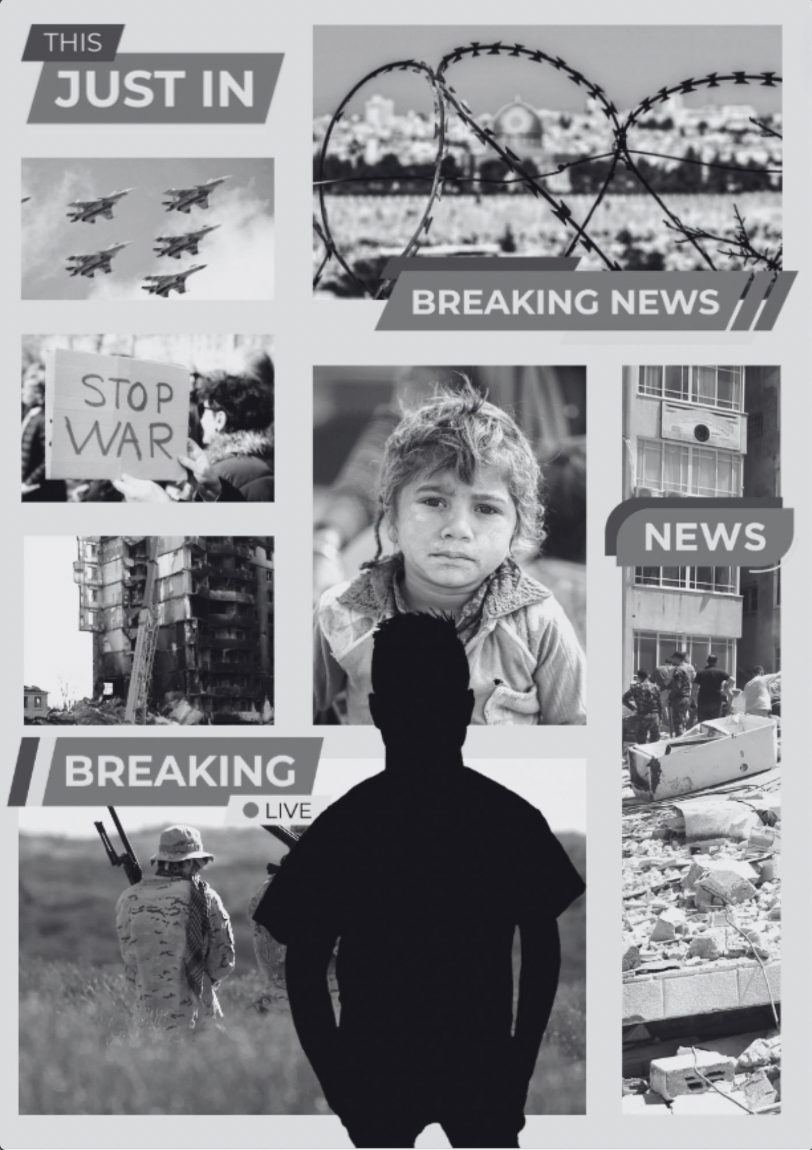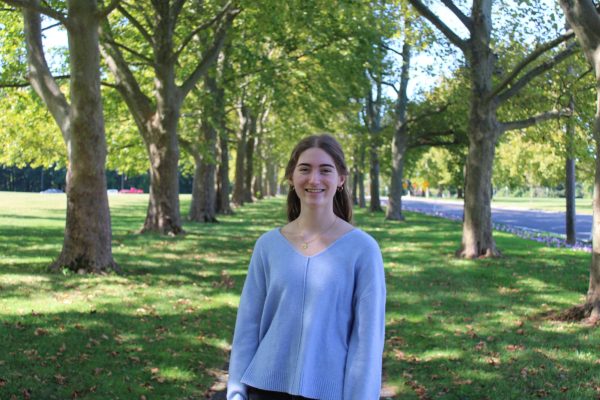In the age of digital media, we students feel lost in an endless stream of world news. This has become increasingly apparent in the shadow of the Israel-Hamas conflict. These global issues seem insurmountable, and high schoolers may feel there is little they can do to help. But are teenagers truly powerless in the shadow of current world events, or are there steps we can take to help ourselves cope and even aid in solving the issues themselves?
Organizations such as the National Association of School Psychologists (NASP) have researched the effects of unsettling global issues on mental health. In their recent publication, “Supporting Youth Affected by the Violence in Israel and Gaza,” they specifically mention that individuals may feel fear, anger, loss of stability, isolation, confusion, and hypervigilance.
“While this conflict may be geographically distant, it has relevance here at home, is ongoing, and is occurring in the context of other stressors,” NASP said. “This can contribute to more serious chronic stress and potential associated health problems.”
Part of the problem revolves around how students consume world news. It is important that we are informed on current events, so we can communicate educated opinions on the topic, or even vote for governmental representatives who support our views. Yet, while school psychologist Mr. Cotie Strong agrees with this idea, he points out that it’s just as important to monitor and limit the news’ impact on teenagers’mental health.
“When it begins to be something that’s causing you stress and anxiety and not supporting your everyday life, you need to cut down,” Mr. Strong said. “I know it’s hard because on social media this stuff pops up all over the place. Try to minimize those things, especially if they’re affecting you.”
If a certain statistic or picture of the conflict is at the forefront of a teens’ mind all day, harming their ability to focus on daily tasks, it is important that they contextualize the tragedy out of their daily life. Though it is important to empathize with others, we must also recognize when stress over remote situations drains our ability to function properly within our own.
Monitoring media consumption is further complicated by fake news. With the internet at our fingertips, Generation Z is often regarded as the most connected generation. However, the constant influx of information, especially on social media, makes it difficult to differentiate biased from credible news. In order to attract attention, clickbait may feature standout headlines that exaggerate events or place blame on certain parties to draw emotion from readers. Therefore, students should be careful not to take everything they see as truth, and to stay skeptical of certain statistics or statements which seem unlikely or biased.
Furthermore, social media streams and even some news sites are designed to supply consumers the type of content they enjoy, so as to keep them coming back for more. This produces an echo chamber effect, where the seeming support of their news sources causes people to double down on their beliefs under the impression that most others agree. This worsens social issues such as political polarization, heightening tensions in our already factionalized country. As such, students need to actively seek varied news sources which speak from different biases, so that they hear all sides of the issue and begin to understand the bigger picture.
Witnessing arguments over who is at fault for the hostilities further harms students’ mental health. Teens may find themselves playing the role of peacemaker between friends or family members as a result of heated opinions brought out by the conflict. Mr. Strong suggests that, in such situations, it’s best to take a step back and evaluate before involving yourself in an aimless argument.
“Is someone getting upset because they have a legitimate concern? Or is it someone just reacting to something that’s not an educated understanding and they’re just getting upset to get upset? If it’s a situation like that, that’s a breakdown of communication,” he said.
As long as it does not increase students’ own anxiety, though, calmly hearing others out is one way in which they can help during this conflict. Being able to talk through their worries allows teens to seek support. Mr. Strong and the school counselors are available to speak with any student feeling unsettled by the conflict.
Other opportunities to help during these hostilities include donating to charitable causes—such as Action Aid, Mercy USA, or The International Committee of the Red Cross—currently working to distribute resources to those affected by the conflict. Some local non-profits may also be seeking volunteers to help collect and package supplies to send overseas. Furthermore, students can sign petitions or even join protests to ensure their voices are heard. Our governmental representatives ought to take into account their constituents’ convictions on the conflict.
There is plenty of good that can and must be done in response to a crisis such as this. As teens, it may seem there’s little we can do. But simply taking charge of our own mental health is a step in the right direction, and there are many constructive paths to take from there.




